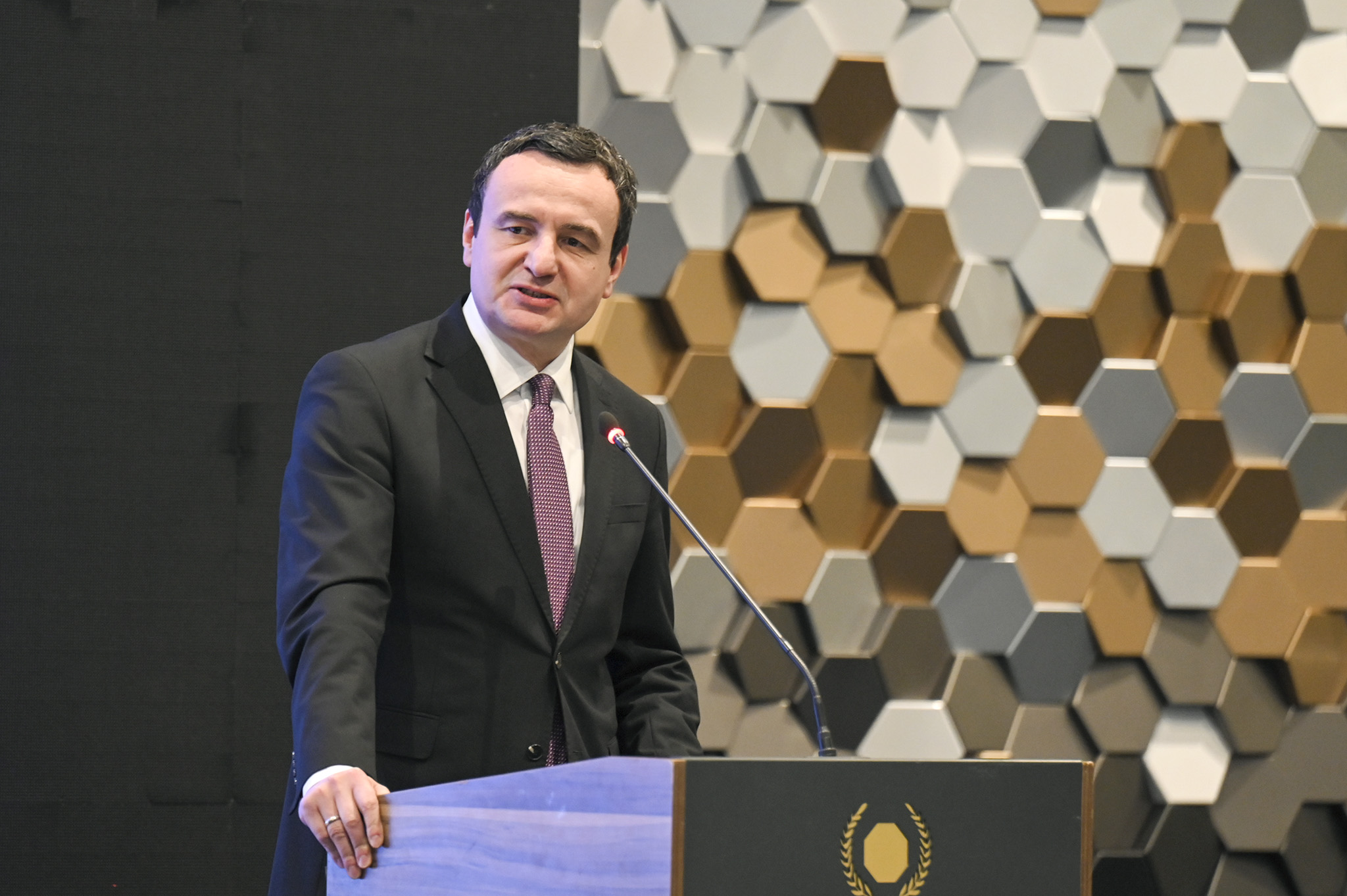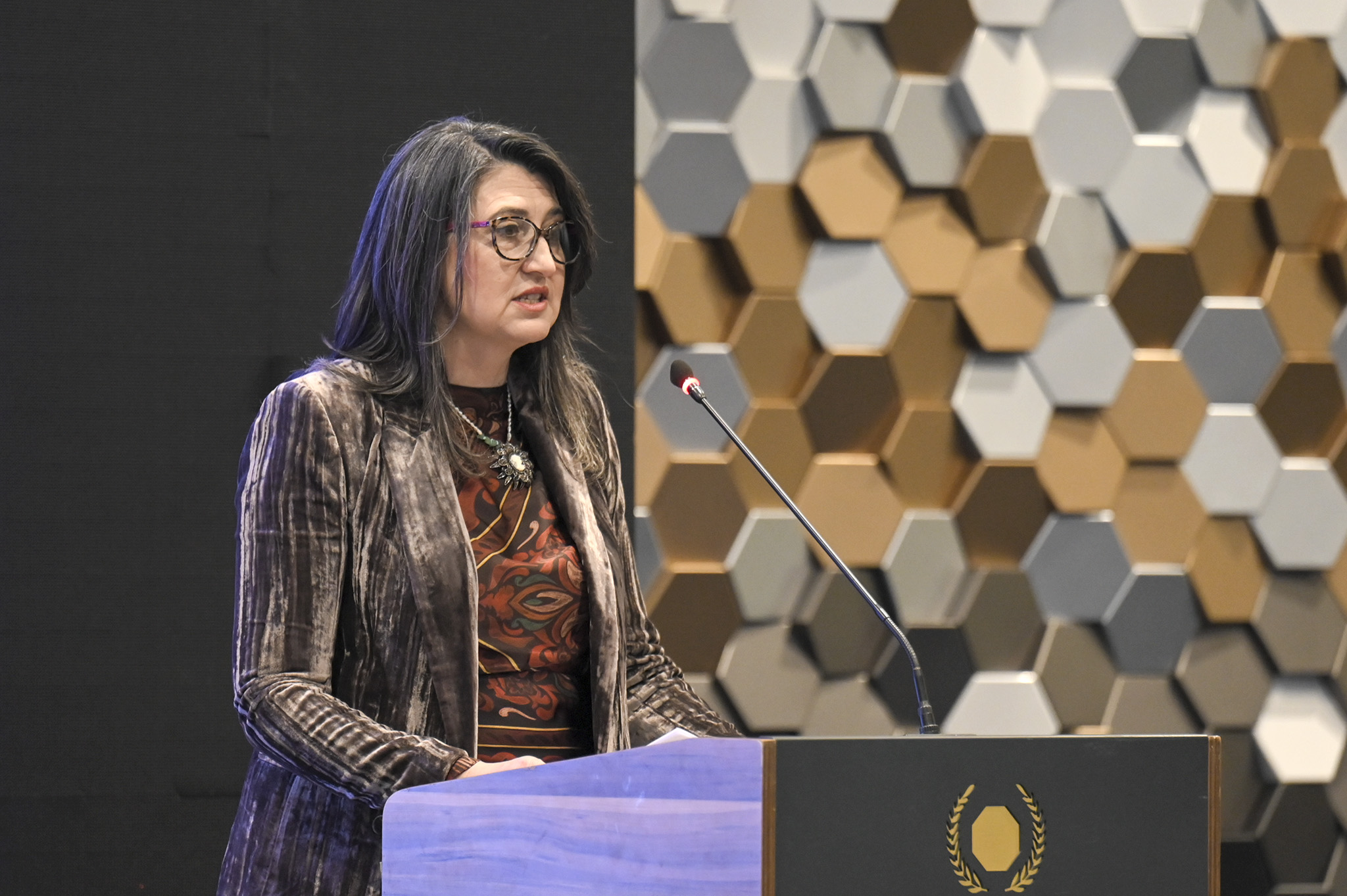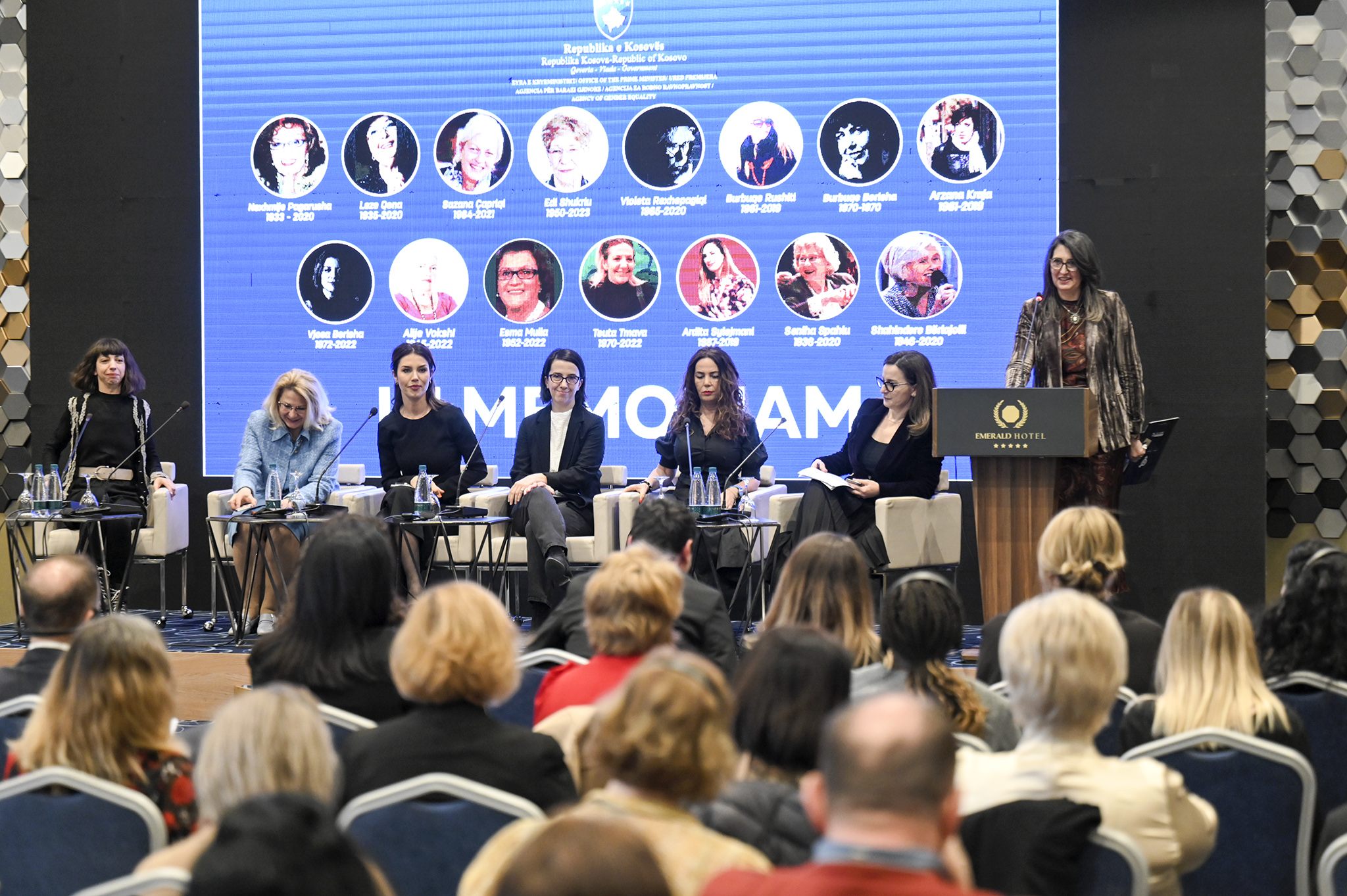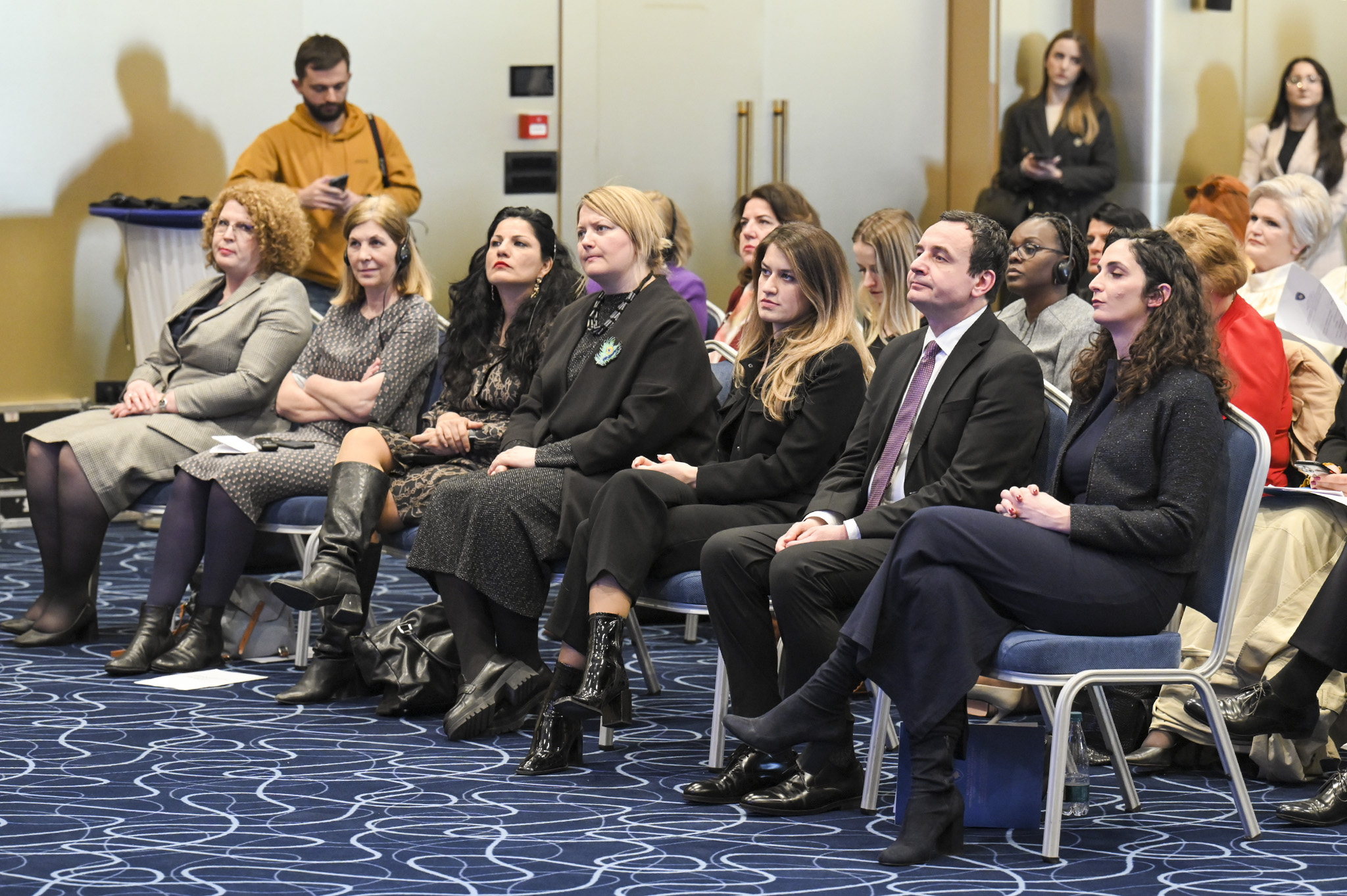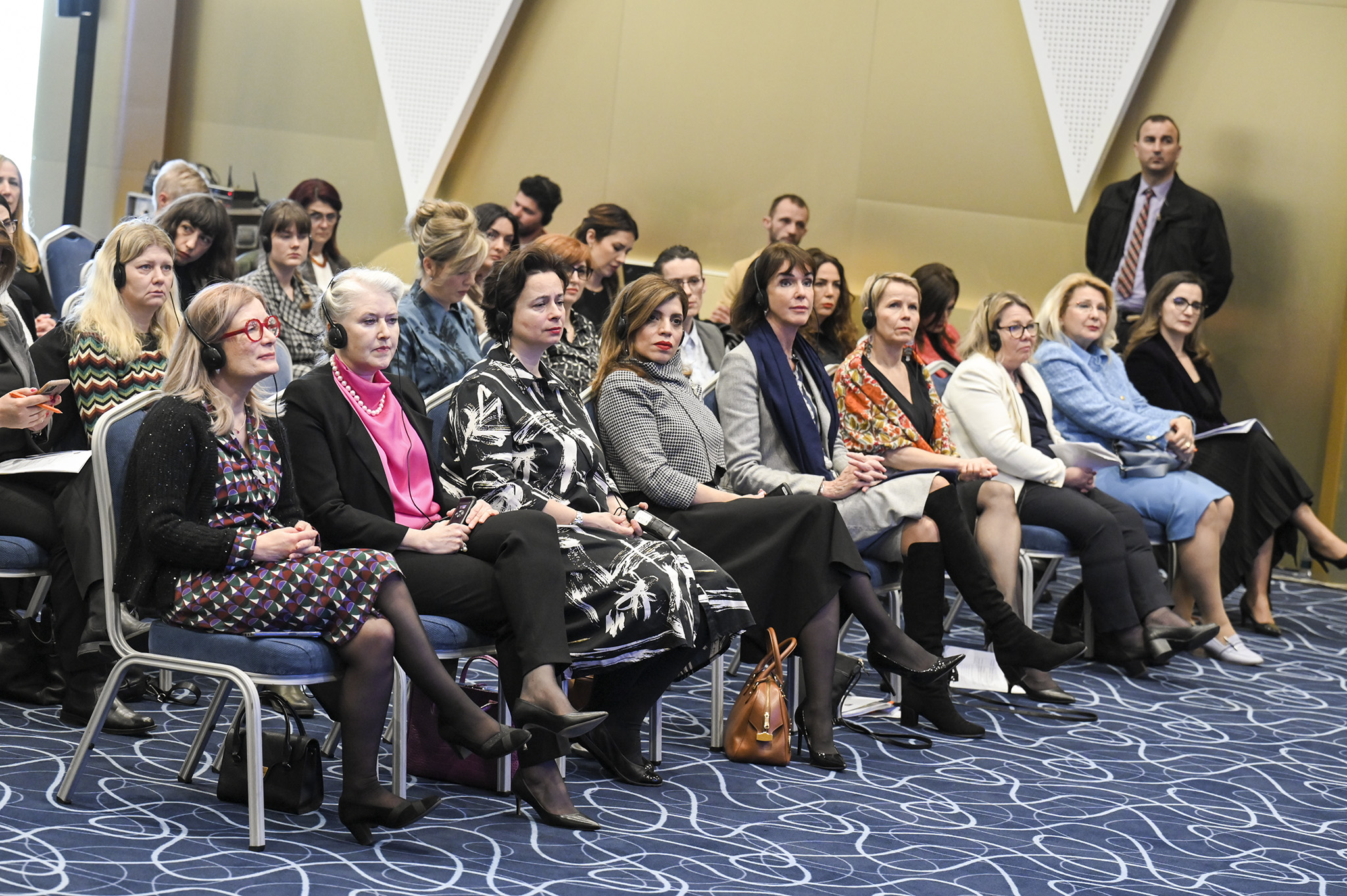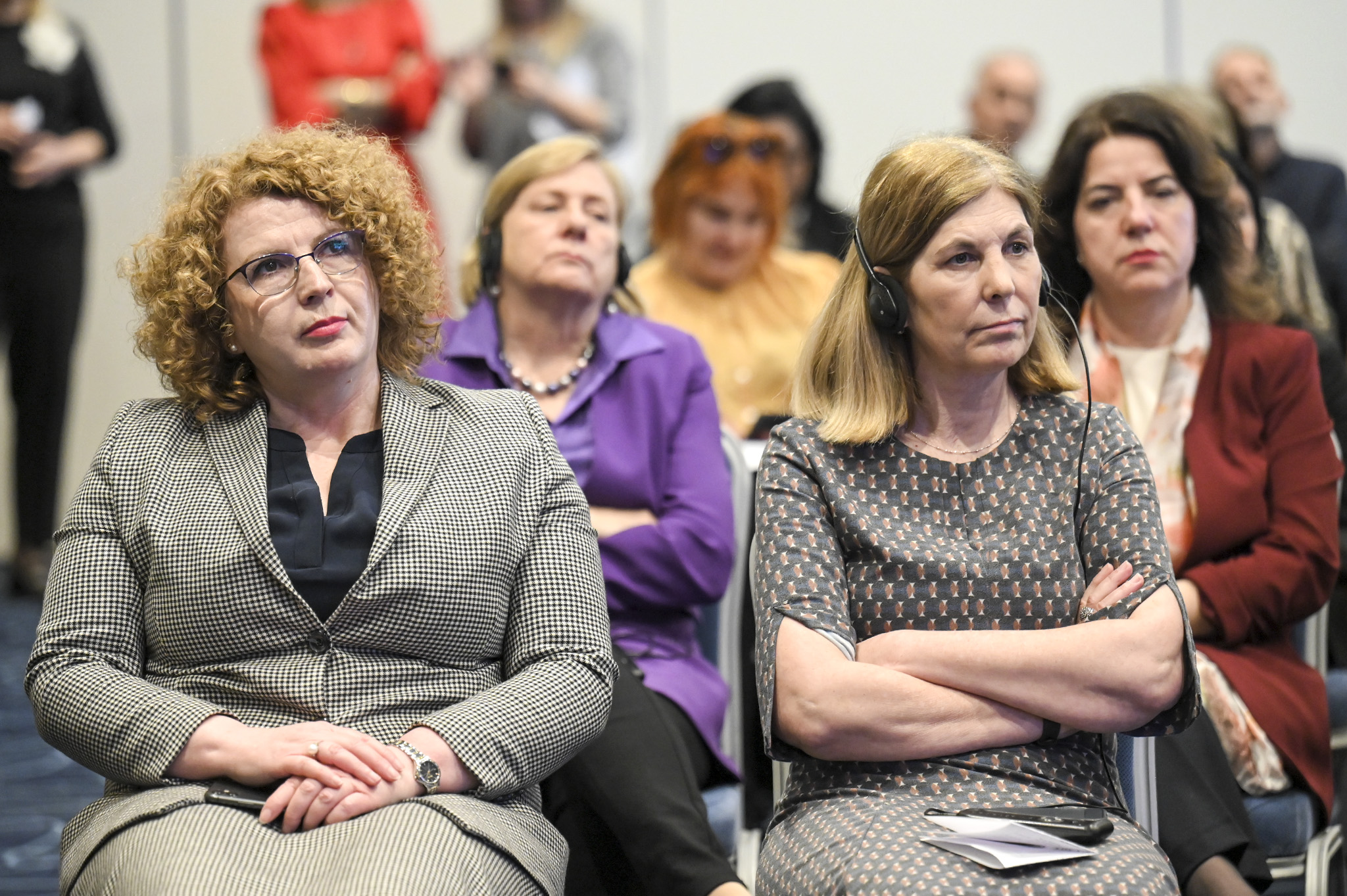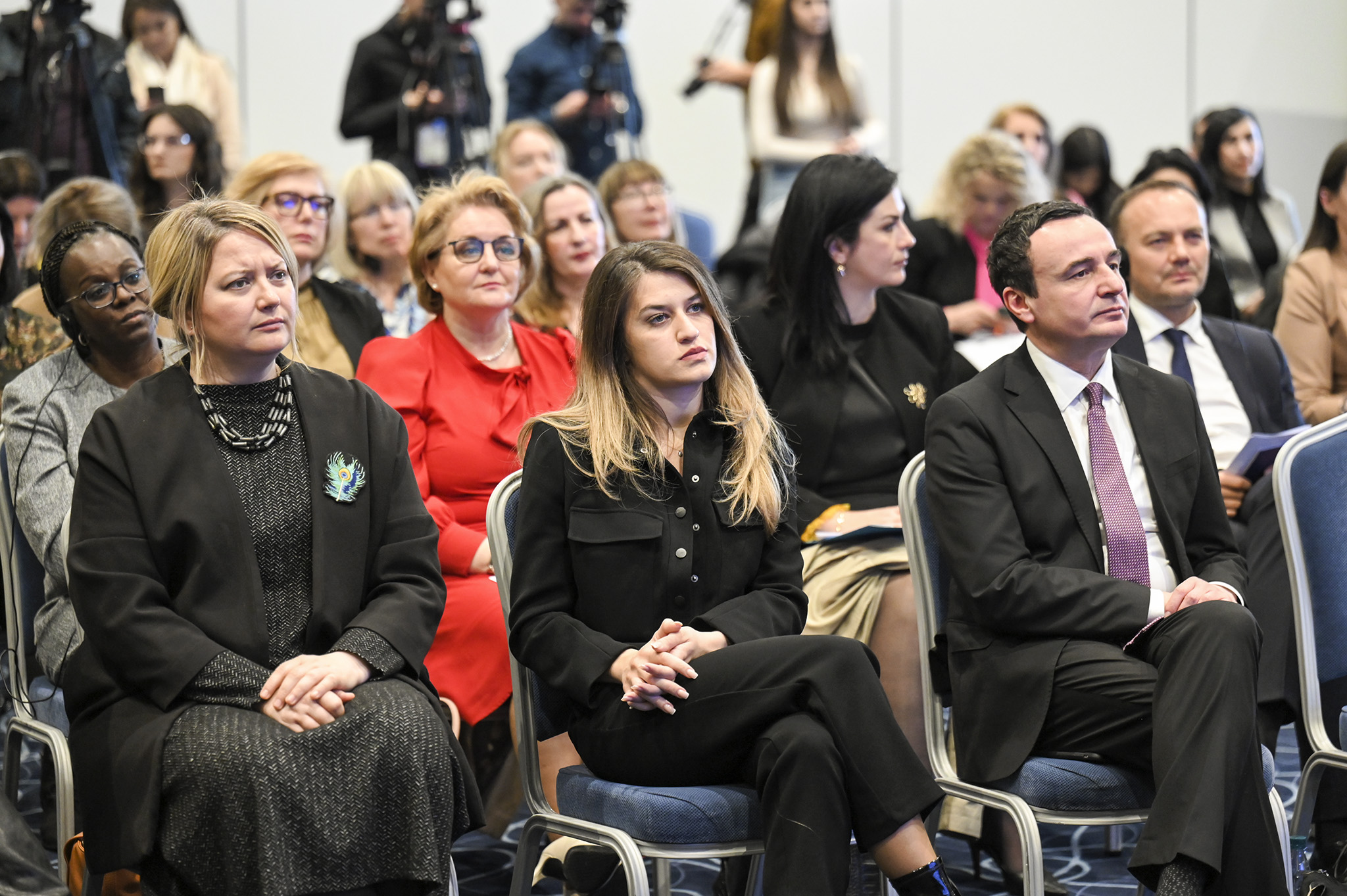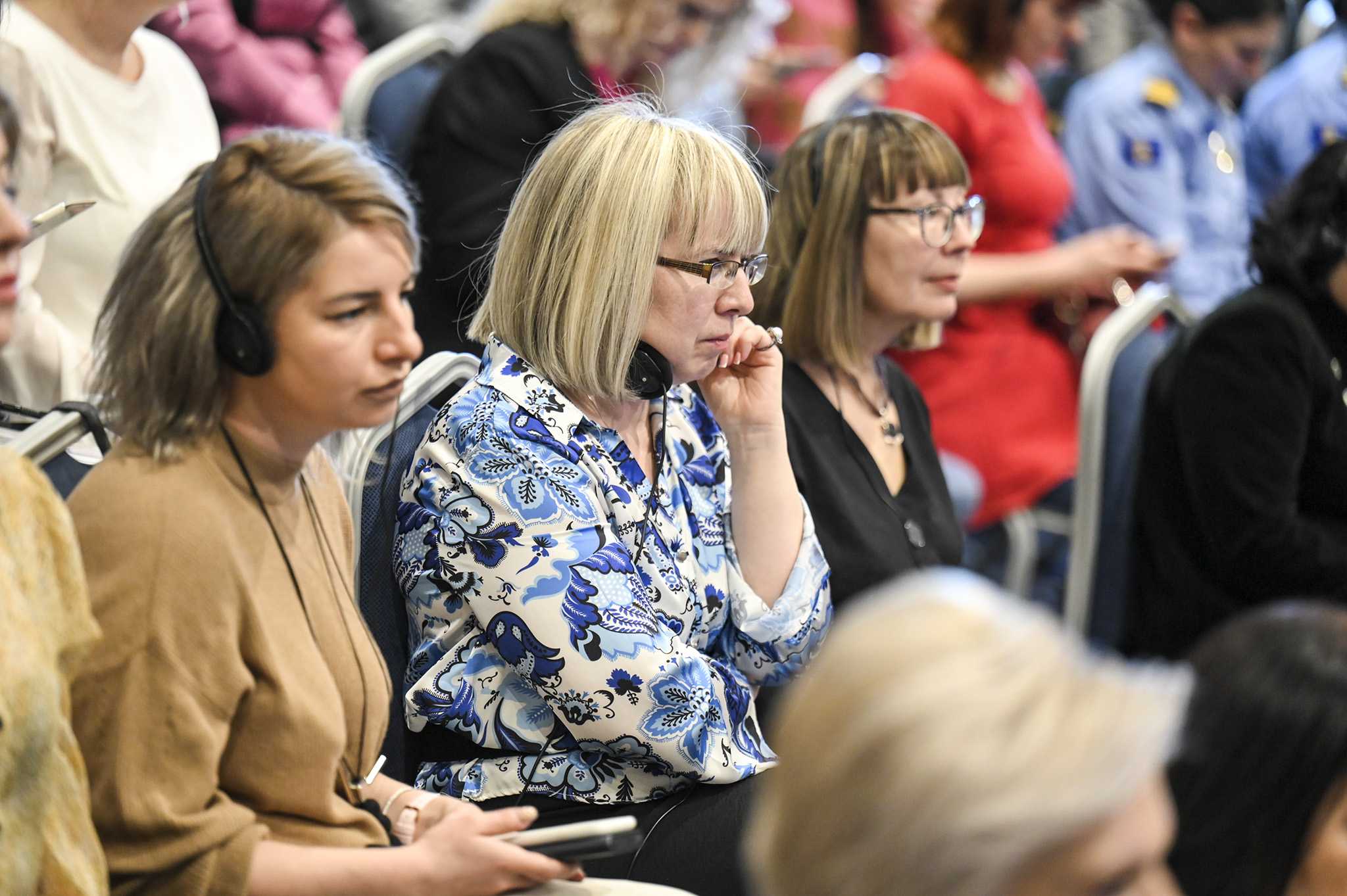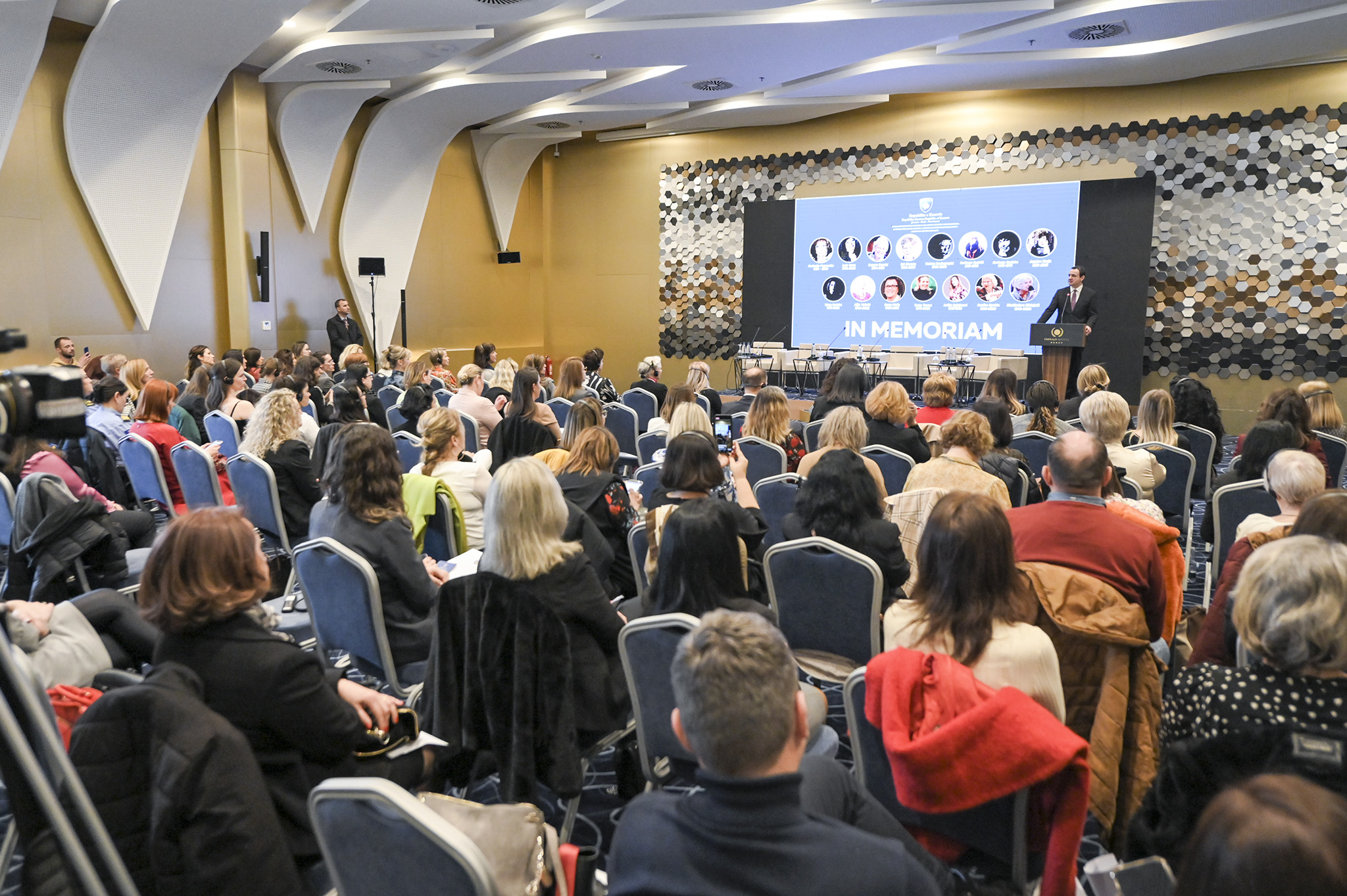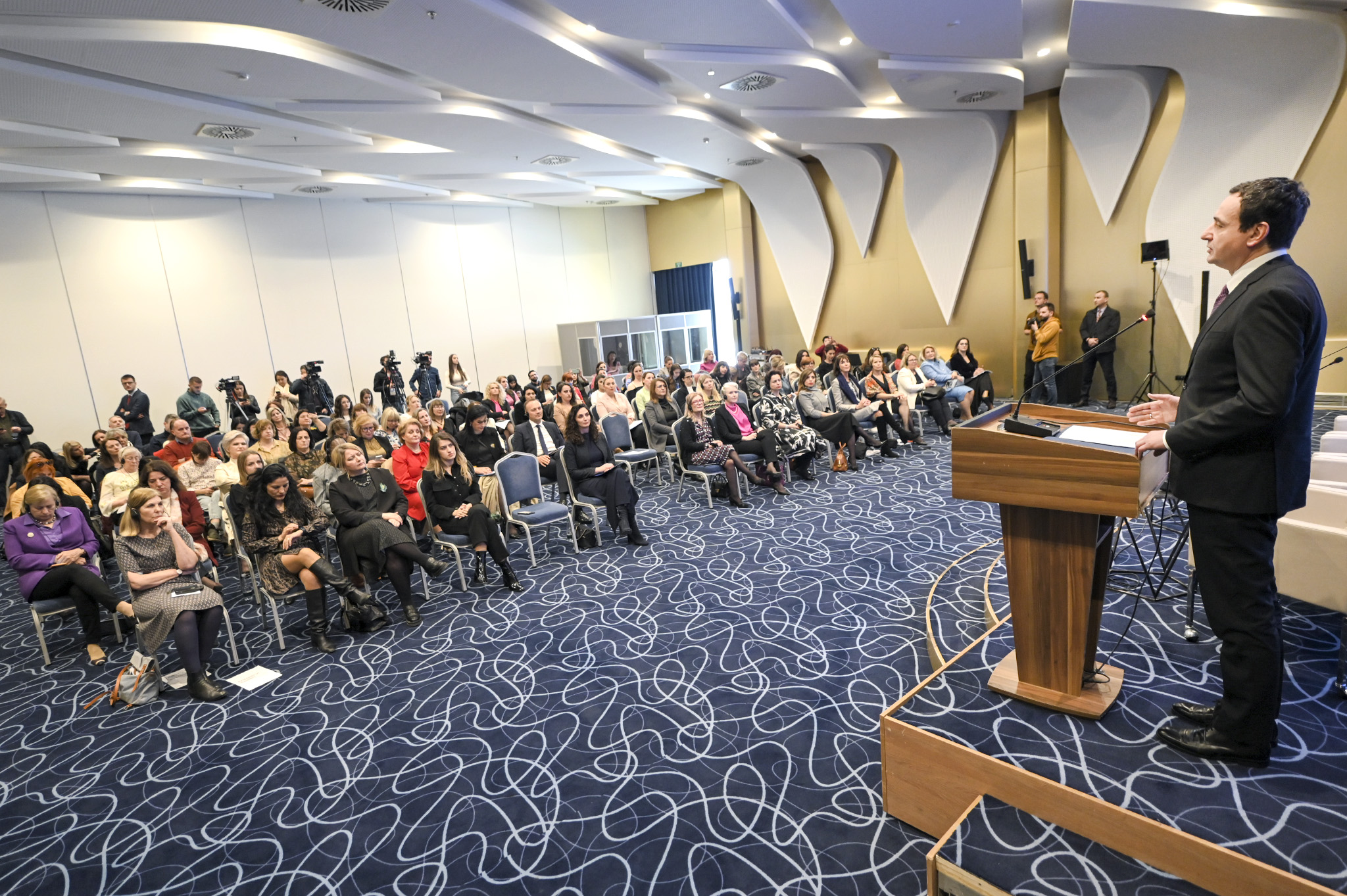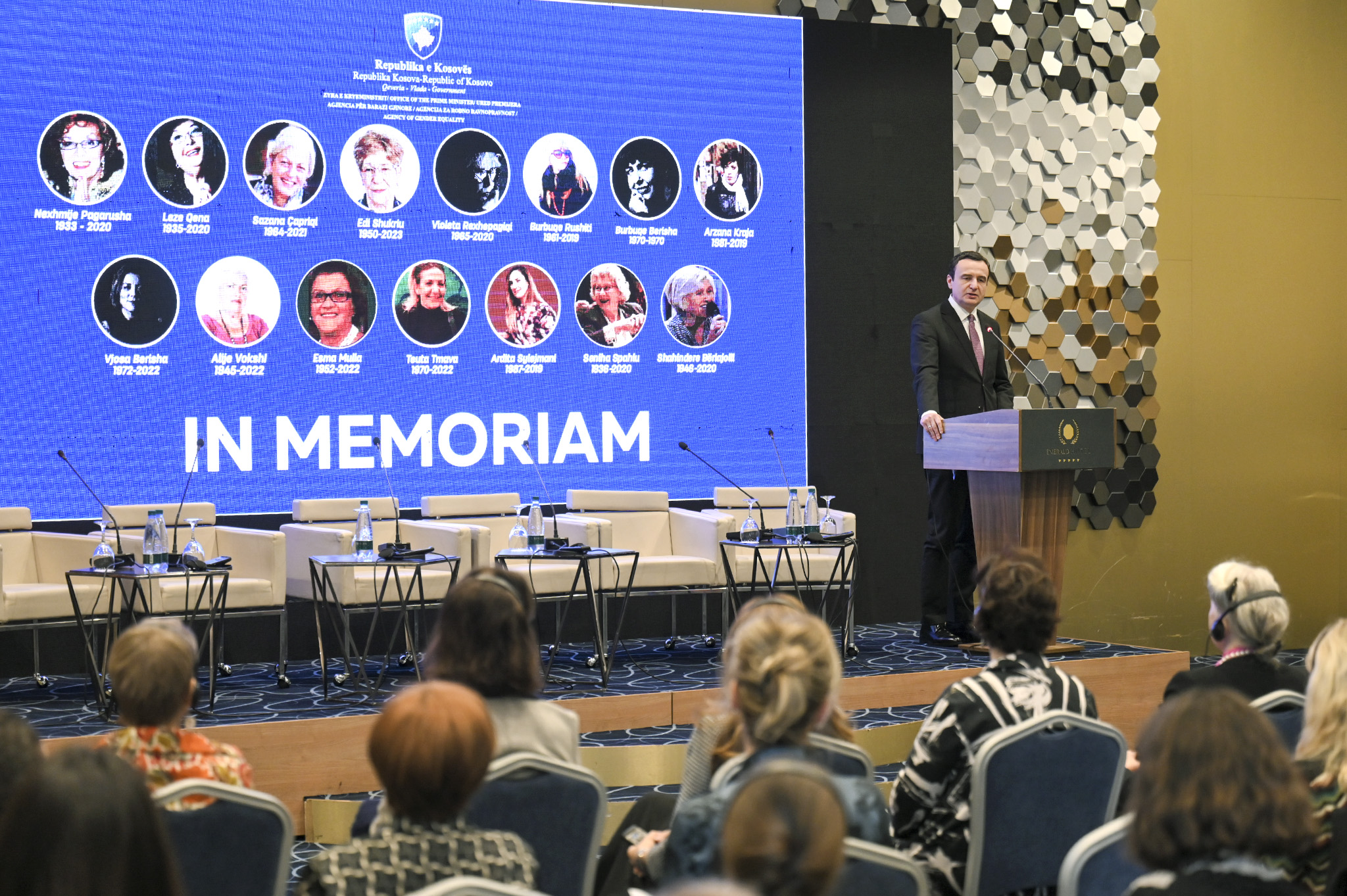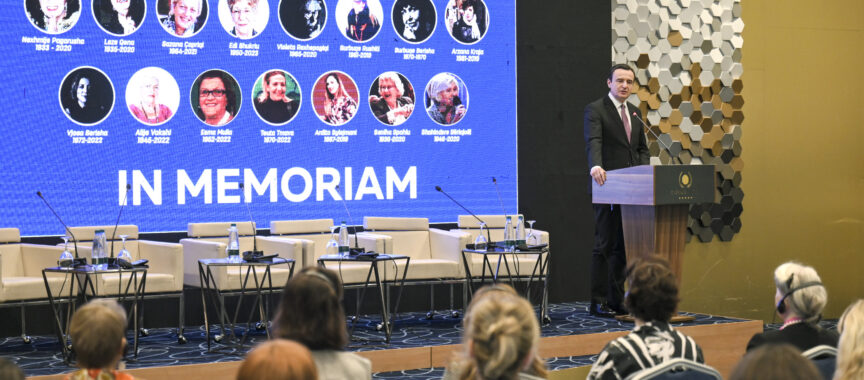Prishtina, 8 March, 2023
The Prime Minister of the Republic of Kosovo, Albin Kurti, participated today in the promotion of creative women from Culture, University and Media, an event organized by the Agency for Gender Equality within the OPM, on the occasion of International Women’s Day, March 8.
Prime Minister Kurti started his speech with thanks instead of greeting, saying that we are thankful and grateful for the contribution of creative women and their influence on our social progress, on the formation and artistic experience.
This event is dedicated to the memory of creative women, university professors and journalists who passed away during the COVID period.
Prime Minister Kurti’s complete speech:
Dear Head of the Agency for Gender Equality, Mrs. Edi Gusia,
Dear Deputy Ministers of the Government of the Republic of Kosovo, Mrs. Daulina Osmani, and Linda Çavdarbasha
Honorable professor Lejla Haxhiu Pula, Mrs. Besa Llugiqi, Soprano, Mrs. Blerta Zeqiri, Director; Professor Zake Prevlukaj; Ms. Doruntina Basha, Playwright/Screenwriter,
Honorable Vice Chancellor at the University of Pristina. Ms. Arta Basha Jakupi,
Dear professors Vjollca Krasniqi, Majlinda Daci Ajvazi, Ardiana Gashi,
Dear Ms. Ibadete Bytyqi, Scientist of the year 2021,
Dear journalists, Mrs. Saranda Ramaj, Mrs. Kaltrina Rexhepi, Mrs. Gentiana Begolli Pustina, Mrs. Dafina Halili,
Dear journalists from Ukraine and Afghanistan,
Dear diplomatic representatives of friendly countries,
Your Excellency ambassadors Ms. Vakali, Mrs. Benedejcic, Mrs. Ziadeh, Mrs. Spence and Mrs. Suokko
Dear representatives of institutions, international organizations, and civil society,
Dear women and human rights activists,
Dear attendees, ladies and gentlemen,
Thank you, instead of greetings. Because we are thankful and grateful for the contribution of creative women and their influence on our social progress, on the formation of our artistic experience.
No great creative tradition has been made without women. Some women’s creations are well-known and some were never known to be theirs. All women in art have revolutionized their lives, but also ours anyway. Until they expressed themselves artistically and creatively, the public, the society was degraded by them.
Therefore we must know them, their names, and their deeds. Let’s read them, quote them, mention them and promote them and never forget them.
Since this organization is in honor of the artists, activists, researchers, writers and creators who left us in recent years, here in front of you we have placed the names of some of them, who left us in recent years. But from whose work we do not want and will never be able to part.
Honoring their intellect today, we encourage young women to follow the path of thought and creation. They have made the big difference by not accepting to be only muses but also creators. They had very clearly resolved this subject-object relationship. They still offer this model today, not only for young girls, but for anyone who has chosen the path of originality and authentic expression. They are really no longer with us, but life counts with work. They lived longer, because their lives were dynamic in activity and deep in creation.
Despite all the work and commitment of pioneering women, creative women are still underrepresented, unrepresented, and sometimes even completely unknown. Of course unfairly.
Often times women authors, creators, give the impression that they are more focused, much more focused, like no one else, on their works much more than on themselves. This is also true art. Not marketing over art. They have even denied themselves so much in front of the works that a large part of the literature created by them is anonymous. Between initials or pseudonyms, they have masked their gender to ensure public and serious treatment of creativity. While their thought has been suppressed, space and time small, their courage has always been great. Multiple challenges during work, publication, during criticism and sometimes even after death. Even after death they are not treated the same as their colleagues and friends. They are commemorated on every anniversary, and these risk the undeserved punishment of oblivion. Therefore, we are obliged to always remember them, to exalt their authority, their work and their works.
I am aware that authors often have to work twice as hard in order to get close to the public stage. And I’m not just talking about the work-life balance, the unfair gender division of jobs, but also about the artistic work itself. It takes twice as much commitment to achieve success as men. And if you reach the pinnacle of success, then there is often a man to share the credit. Reality shows that in fact the artistic creativity of male authors is not entirely their own. It is greatly influenced by the women in their lives.
When the Nobelist Mario Vargas Josa wrote about the death of the writer Julio Cortazar, since he knew him closely, he could not help dedicating a few pages to Aurora, Cortazar’s wife. He writes: “it is difficult to say who had read more and better and who of the two said sharper things”. He mentioned these by appreciating the intellect, creativity, deep knowledge of literature and the sacrifice that the family had only one writer.
And this is not just a case among creators. Virginia Woolf, for example, raised doubts that men’s literature is really men’s?
In the contribution of women, through research with gender optics, we find authorial traces of women as partners. Thoughts, creations, works, publications are sometimes not entirely authentic but directly influenced by support or discussion with their partners. They created and maintained an intellectual spirit in the home and in every conversation. Therefore, it is rightly said that the works are also the works of their wives.
While women often do things in the obstacles and against the obstacles of men, the works of men are only men’s. The same as the mothers of the martyrs who were decisive in many cases for their children to join the war. It was their education on the importance of freedom that led them to the decision to become part of the liberation struggle.
Among the foreign researchers of the Albanian nation, perhaps those who have loved us the most are precisely two women, Edith Durham and Berit Baker.
Days like this, but not only this, remind us that we should be grateful to women as authors even when they are not signed as such. And when they are authors, we are doubly obliged to recognize their works, for their merits and for their memory.
The data are not very accurate, but as far as we have, they show that libraries in Kosovo are frequented more by female readers than by boys and men.
So, the books are read more by women and girls, but potentially they are written by male authors. And those books that are written by female authors depend on critics, generally by men. The same can be in any genre of creativity. The 10 most successful authors in the world have only 19% of male readers and 81% female readers. A very different ratio is with male best-selling authors. The ratio stands at 55% male and 45% female readers. So the task remains with us men to get to know the works of women’s creativity better and more. Accept it as our intellectual, informative and artistic reference. As with many issues of equality, the responsibility of changing the situation here also falls on men. After all, the problem of inequality itself is created by men. So those who created the problem must solve it, or be part of the solution. Without gender equality, there is no social equality, and to achieve this, the emancipation of men for gender equality is needed first, as a prerequisite for social equality.
It is very important that the children, pupils, students have the female authors both present and nearby. The education of the new generations, in addition to moral education for gender equality, should also be cultural and aesthetic education for gender equality. Education has no less important aesthetic component in addition to the ethical one.
So let’s fill the shelves of our libraries with the poems and prose of our writers, see the films of the producers and directors, honor, preserve and cultivate their music, recognize their research and scientific work. And when they are gone, let’s not forget them. Let’s remember them, like today, forever.
Dear ladies and gentlemen,
We are together to push forward the gender equality agenda in the Republic of Kosovo. We are happy that within two years of implementation, we have achieved 18 out of 34, i.e. over 50% of the goals of the Kosovo Program for Gender Equality.
With institutional responsibility and social awareness, with dedication and concrete actions, we will be together in the struggles and efforts for a society that is fair, progressive and progressive.
Happy International Women’s Day!
Thank you.
Last modified: March 9, 2023
